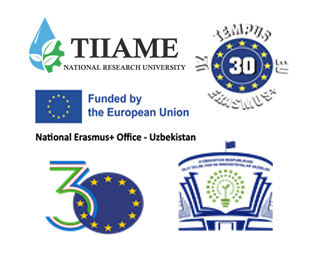Before the International Conference
18.12.2024

Ideas and actions for the reform of the higher education system are of significant importance not only within our country but also in the global education system. So, what prospects does the development of the higher education system offer? Let's first address this question.
Innovative Education Models Implementation: There are opportunities to effectively and adequately develop education in higher education by adopting new teaching methods and technological innovations, such as online learning platforms, interactive simulations, and virtual laboratories.
International Cooperation and Mobility: Improving the quality of education by aligning higher education institutions with international standards, expanding academic exchanges, and increasing cooperation with foreign universities.
Integration of Education and Industry: Connecting higher education with production and industry, improving links between students and employers, and strengthening connections between practice and research to enhance knowledge and skills related to production.
Democratic and Reliable Education: Creating equal opportunities for all groups, expanding access to education regardless of gender, age, or social status.
Directing Students Towards Research and Innovation: Increasing the significance of scientific work, developing new ideas and techniques through research, and equipping students with new knowledge and technologies.
Introducing New Specialties and Education Directions: Implementing educational programs in modern fields that will be in high demand in the future, such as artificial intelligence, sustainable development, robotics, and nanotechnology, with a focus on these areas.
At the same time, these directions aim to improve the efficiency and quality of higher education and enhance the intellectual potential of the population.
As a practical expression of these goals, the international conference organized at our "TIQXMMI" National Research University on December 20 will be held in collaboration with the ERASMUS+ national experts team. An active process is underway in this regard. In the morning, a meeting chaired by the rector Bahodir Mirzayev focused on this issue, and several instructions were given to the responsible parties.
First of all, we find it important to provide some information about this organization.
Erasmus+ is a program aimed at supporting education, vocational education, youth, and sports in Europe. It has been in operation since 1987 and is focused on promoting educational, professional, and scientific exchanges between European countries. The Erasmus+ program operates in many European countries and encourages cooperation, new approaches to education, and the development of social cohesion.
The Erasmus+ program works in the following key areas:
- Higher Education: Exchange programs for students and teachers, diploma recognition, scientific research, and cooperation.
- Vocational Education and Training: Enhancing the qualifications of specialists in the vocational education sector, internships, training, and program development.
- Youth: Programs aimed at increasing the social activity of young people, enhancing their freedoms, awakening their potential, and promoting social integration.
- Sports: Developing sports, achieving social stability through sports activities, and reducing the impact of dangerous sports.
The Erasmus+ program helps participating countries strengthen their scientific and educational activities through new knowledge, experiences, and resources. For students, it provides opportunities to study in European countries, live abroad, and improve their professional skills.

